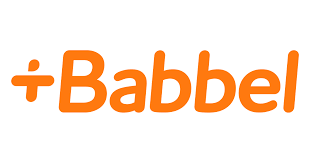Guide to the Erasmus Programme

History of Erasmus
The Erasmus Programme (EuRopean Community Action Scheme for the Mobility of University Students) was created to ease cooperation between European universities and allow for full academic recognition of studies and qualifications throughout the Union. The Programmeme is named after a 16th century Dutch scholar, Desiderius Erasmus of Rotterdam. An orphan who received a religious education, Erasmus eventually earned a doctorate in Paris and developed his own unique methods and theories concerning teaching. He continued his work by bequeathing his fortune to the University of Basel as a precursor of mobility grants.
The European Commission had been working on a pilot student exchange Programme in the early 1980s when the Erasmus Programmeme was proposed. Some countries, like France, Germany and the United Kingdom, already had exchange Programmes and were reluctant to join. Other countries were completely in favour. A compromise was finally reached with a simple majority of Member States and the Programmeme was adopted in June 1987. After a rocky start, 3,244 students were able to participate in the first year.
For over 25 years, the Programme has grown and adjusted to the changing needs and demands of the students and EU. Today, the Programme has expanded to 4,000 higher learning institutions, 33 countries with over 2.2 million students participating.
The Programme is still not without controversy and issues. Funding and management has been a problem and a massive overhaul of the Programme was in order. Erasmus for All will replace the many different Programmes (Erasmus, Leonardo da Vinci, Comenius, Grundtvig, Youth in Action, Erasmus Mundus, Tempus, Alfa, Edulink) of the Lifelong Learning Programmeme (LLP) to reduce administration costs, duplication and fragmentation. The Programme would be in operation until 2020.
Erasmus Programme
The Erasmus Programme offers the possibility of studying abroad for between 3 months and 1 year, with scholarships, grants, and transferable tuition.
-
Objectives
- To enable students to benefit educationally, linguistically and culturally from the experience of learning in other European countries;
- To promote co-operation between institutions and to enrich the educational environment of host institutions;
- To contribute to the development of a pool of well-qualified, open-minded and internationally experienced young people as future professionals.
Who is Eligible?
Eligible students must be enrolled at a Higher Education or a Higher Education/Further Education (HE/FE) Institution that holds an ERASMUS University Charter in the EU Member States, Iceland, Liechtenstein, Norway, Switzerland, and EU candidate countries. The student must be enrolled at least in the second year of higher education studies. Students may also enroll if they are enrolled in a short term higher vocational education course or if they are a part-time student that will study full-time during their period abroad. Postgraduate students can also take part in Erasmus, provided they have not already exceeded their grant quota.
Erasmus also offers education and training opportunities for teaching and non-teaching Staff. It's a great opportunity to teach or work in another EU country and get to know the workings of their educational system. Learn new ideas and best practices, develop your international network, and enhance your language skills. You will also acquire first-hand experience to share with students and colleagues who may be interested in Erasmus.
Programmes
Erasmus Study Mobility
Students can take part in the Erasmus study mobility at any time during their degree, except during the first year. When you go will depend on the structure of your degree and the arrangements your university has with its partners. Credit is given by the home institution.
Work Placement
Work Placements need to be approved by the home institution, with an agreement between the student, institution and employer. Students in their first year of study are eligible for work placements. Some employers offer a basic income in addition to grants. Work placement offers credit and recognition by the home institution.
The Language Assistant programmes allows participants to improve language skills and explore a community. Language assistantships in other EU, EEA member states or Turkey are now considered as work placements under Erasmus. Undergraduates participating in the official Language Assistants programme are eligible for Erasmus status, subject to eligibility criteria being met.
Note that the language of instruction may be different than that of your home institution. Some institutions organize tests and select the students based on their skills on the language, such as the Deutsches Sprachdiplom in German, Dele in Spanish, or TOEFL in English. Erasmus Intensive Language Courses may be offered at host universities.
Participating Countries
Participation countries include countries in the EU, EEA, or candidate country. Students from all subject areas can participate, from art to zoology, biology to psychology. However, not all institutions offer Erasmus for all subjects. Do your research and make sure the institution you want to go to provides your Programme.
Duration of the Programme
Students may study abroad for between three months and an academic year. For students on short term higher vocational education courses, the minimum period on a work placement is two months. You can combine a study period with a work placement (providing there are no gaps between the two activities) so it is considered a single Erasmus period with funding for up to 24 months.
How to Apply
It is advised to start preparing for your stay at least 1 year before departure. The earlier you plan, the better chance you find the right Programme for you and are able to submit your applications before all pertinent deadlines.
The home institution of the students applies for ERASMUS mobility grants to its national agency while the students apply to their home institution. Students apply through their university with an Erasmus Coordinator in their subject area. Applicants must submit:
- Level of qualifications
- Level of language
- Current degree
- Desired courses
Applicants should be prepared to submit certified copies of all diplomas since the baccalaureat or A Level. Translations may be required.
Tuition & Grants
Students benefit from the tuition fee-waiver scheme. For example, a foreign student spending a full academic year on Erasmus does not pay any tuition fees in their host country for that year. They only pay the tuition of their home country. However, if you study abroad for less than a year, you will have to pay the tuition fees. Students may only receive two ERASMUS grants: one for a study period and one for a placement period. The payment of any national grant or loan to outgoing students should be maintained during the ERASMUS study period abroad.
Students may also receive an Erasmus grant for study or work placement. These are supplementary, non-repayable grants intended to offset any additional expenses incurred while abroad. The Erasmus grant is not means-tested. To be eligible, students must be registered at a Higher Education institution which holds an Erasmus University Charter (EUC) and spend an approved study or work period of between 3 to 12 months each at an institution which holds an EUC in another EU, EEA or candidate country. Grant values vary depending on the country you visit.
- Band 1 (Bulgaria, Romania) - €270/month
- Band 2 (Croatia, Cyprus, Czech Republic, Estonia, Greece, Hungary, Latvia, Lithuania, Malta, Poland, Slovakia, Slovenia, Turkey) - €310/month
- Band 3 (Austria, Belgium, Denmark, Finland, France, Germany, Iceland, Ireland, Italy, Liechtenstein, Luxembourg, Netherlands, Norway, Portugal, Spain, Sweden, Switzerland, UK) - €370/month
Students undertaking short-term work placements can receive additional supplementary funding in order to offset the relatively high initial setÂup costs of such placements. This includes a one-off supplementary grant of €250 can be paid to each student, to assist with the higher expenses relating to short-term accommodation. Up to €300 can be paid to each student for travel costs.
Erasmus grants are paid through your home institution and in addition to the standard grants or loans to which you are entitled. The total duration of all grants may not exceed 24 months.
ECTS
The European Credit Transfer System (ECTS) provides uniform credit across different educational institutions. Student workload consists of the time required to complete all planned learning activities such as attending lectures, seminars, independent and private study, preparation of projects, examinations, etc. One credit stands for around 25 to 30 working hours with 60 Credits representing the workload of a year of study (usually 30 Credits per semester and 20 credits per trimester). Those credits allocated to modules and courses can only be obtained after successful completion of the work required and appropriate assessment of the learning outcomes achieved.
To fully understand how the system works, read our article on the ECTS.
- My Life Abroad -
A selection of expat stories

"A fun compulsive read!"
J. Matcham, Amazon
"I strongly advise people ready to live abroad to read this book!"
Patrice, Amazon

 Private Tuition: A Priority Among Expat Families for Their Children
Private Tuition: A Priority Among Expat Families for Their Children 5 Top International Education Systems For Expat Kids
5 Top International Education Systems For Expat Kids Same language, different ball-game
Same language, different ball-game Babbel
Babbel Global events on real estate markets: are they connected?
Global events on real estate markets: are they connected? The Ultimate Guide: Buying Real Estate as an Expat
The Ultimate Guide: Buying Real Estate as an Expat  Basics to Real Estate Investing for the Long Term
Basics to Real Estate Investing for the Long Term